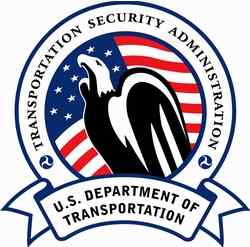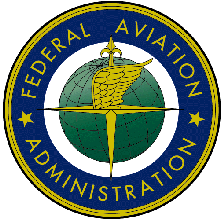...Is a Good Thing:
To get to where the information is, or to comment, go to
this link, and type in, 11580.
Then you, too, can participate in the great democracy of
totalitarian rule. Your comments are requested until April 22
(after which time they won't be given any more consideration than
your arguments already have...).

[Federal Register: February 19, 2002 (Volume 67, Number 33) Page
7537-7545]
14 CFR Part 91; [Docket No. FAA-2002-11580; SFAR 94]
The FAA says, "This action is being taken to restore aircraft
operations at these airports while attempting to counter possible
terrorist threats to the National Capital region." In fact, this
action is being taken to prohibit aircraft operations.
Here's the FAA-speak version, liberally spiced with our
translation:
Background
After the September 11, 2001, terrorist attacks against four
U.S. commercial aircraft resulting in the tragic loss of human life
at the World Trade Center, the Pentagon, and in southwest
Pennsylvania, the FAA immediately prohibited all aircraft
operations within the territorial airspace of the United States,
with the exception of certain military, law enforcement, and
emergency related aircraft operations. This general prohibition was
lifted in part on September 13, 2001...
 Although many of the restrictions on
operations in the Washington, DC area have been eliminated, NOTAM
1/3354 continues to prohibit aircraft operations under part 91 at
College Park Airport, Potomac Airfield, and Washington
Executive/Hyde Field. In 2000, approximately 89,000 part 91
operations were conducted from these airports. The current
restrictions have caused significant economic hardship for these
airport operators, aircraft owners and operators based at the
airports, and businesses located on, or dependent upon, the
continued operation of the airports. These operational restrictions
have remained in effect longer than the restrictions imposed in
other areas because of the proximity of the airports to the
significant number of critical government assets in the National
Capital region and the continuing threat to that area. [The
"continuing threat" by whom? Even the FAA knows that the September
11 damage was caused by commercial aircraft, not GA, and that last
year's "demonstrations" of what GA aircraft can do to bank
buildings showed how little damage can actually be made by such
airplanes.]
Although many of the restrictions on
operations in the Washington, DC area have been eliminated, NOTAM
1/3354 continues to prohibit aircraft operations under part 91 at
College Park Airport, Potomac Airfield, and Washington
Executive/Hyde Field. In 2000, approximately 89,000 part 91
operations were conducted from these airports. The current
restrictions have caused significant economic hardship for these
airport operators, aircraft owners and operators based at the
airports, and businesses located on, or dependent upon, the
continued operation of the airports. These operational restrictions
have remained in effect longer than the restrictions imposed in
other areas because of the proximity of the airports to the
significant number of critical government assets in the National
Capital region and the continuing threat to that area. [The
"continuing threat" by whom? Even the FAA knows that the September
11 damage was caused by commercial aircraft, not GA, and that last
year's "demonstrations" of what GA aircraft can do to bank
buildings showed how little damage can actually be made by such
airplanes.]
After discussions with the National Security Council, the United
States Secret Service, the Department of Defense, and the Office of
Homeland Security, it was determined that national security
concerns regarding operations at College Park Airport, Potomac
Airfield, and Washington Executive/Hyde Field could be addressed by
permitting operations at these airports in accordance with the air
traffic and security procedures set forth in this SFAR. [Yet the
restrictions, while allowing the locals to fly, under heavy
restriction, and at great inconvenience, fail to address the very
survival of those airports, which cannot be supported by local
users alone.]
'Justification' for Emergency Final Rule
 Because flight operations at
airports affected by this SFAR have been prohibited since September
11, 2001, and in recognition of the need to restore operations at
these airports in a manner that responds to the current
[unspecified, and unknown] security threat, the FAA is adopting
this SFAR as an emergency final rule pursuant to section 553 of the
Administrative Procedures Act (APA). Section 553(b)(B) of the APA
permits an agency to forego notice and comment rulemaking when "the
agency for good cause finds * * * that notice and public procedures
thereon are impracticable, unnecessary or contrary to the public
interest." The FAA finds that the use of notice and public
procedures for this SFAR is impracticable and contrary to the
public interest. [Promulgation of a law wouldn't be good practice
-- the natives might get organized, and resist.] The use of notice
and comment procedures prior to issuing this final rule would only
delay the relief provided by this SFAR to airport operators,
aircraft operators, and businesses affected by the prohibition on
operations at the affected airports. [They could always enact it
for a shorter period of time, if they wanted to actually provide
'relief.'] A delay would significantly increase the economic burden
on persons conducting operations that have been prohibited under
previous actions enacted without notice and public comment and
possibly result in the permanent closure of affected airports.
[In fact, the FAA's built-in two year delay virtually assures
the demise of these airports. The FAA must know of some threat
so severe, that these airports must be put out of business, a
threat so confined, that other airports haven't yet been snuffed
out. That'll come later, after the precedent's set with "the
DC-3."]
Because flight operations at
airports affected by this SFAR have been prohibited since September
11, 2001, and in recognition of the need to restore operations at
these airports in a manner that responds to the current
[unspecified, and unknown] security threat, the FAA is adopting
this SFAR as an emergency final rule pursuant to section 553 of the
Administrative Procedures Act (APA). Section 553(b)(B) of the APA
permits an agency to forego notice and comment rulemaking when "the
agency for good cause finds * * * that notice and public procedures
thereon are impracticable, unnecessary or contrary to the public
interest." The FAA finds that the use of notice and public
procedures for this SFAR is impracticable and contrary to the
public interest. [Promulgation of a law wouldn't be good practice
-- the natives might get organized, and resist.] The use of notice
and comment procedures prior to issuing this final rule would only
delay the relief provided by this SFAR to airport operators,
aircraft operators, and businesses affected by the prohibition on
operations at the affected airports. [They could always enact it
for a shorter period of time, if they wanted to actually provide
'relief.'] A delay would significantly increase the economic burden
on persons conducting operations that have been prohibited under
previous actions enacted without notice and public comment and
possibly result in the permanent closure of affected airports.
[In fact, the FAA's built-in two year delay virtually assures
the demise of these airports. The FAA must know of some threat
so severe, that these airports must be put out of business, a
threat so confined, that other airports haven't yet been snuffed
out. That'll come later, after the precedent's set with "the
DC-3."]
[By the way,] The disqualifying criminal offenses are as
follows--
 (1) Forgery of certificates, false marking
of aircraft, and other aircraft registration violation; 49 U.S.C.
46306.
(1) Forgery of certificates, false marking
of aircraft, and other aircraft registration violation; 49 U.S.C.
46306.
(2) Interference with air navigation; 49 U.S.C. 46308.
(3) Improper transportation of a hazardous material; 49 U.S.C.
46312.
(4) Aircraft piracy; 49 U.S.C. 46502.
(5) Interference with flight crew members or flight attendants; 49
U.S.C. 46504.
(6) Commission of certain crimes aboard aircraft in flight; 49
U.S.C. 46506.
(7) Carrying a weapon or explosive aboard aircraft; 49 U.S.C.
46505.
(8) Conveying false information and threats; 49 U.S.C. 46507.
(9) Aircraft piracy outside the special aircraft jurisdiction of
the United States; 49 U.S.C. 46502(b).
(10) Aircraft lighting violations involving transporting controlled
substances; 49 U.S.C. 46315.
(11) Unlawful entry into an aircraft or airport area that serves
air carriers or foreign air carriers contrary to established
security requirements; 49 U.S.C. 46314.
(12) Destruction of an aircraft or aircraft facility; 18 U.S.C. 32.
(13) Murder.
(14) Assault with intent to murder.
(15) Espionage.
(16) Sedition.
(17) Kidnapping or hostage taking.
(18) Treason.
(19) Rape or aggravated sexual abuse. [?]
(20) Unlawful possession, use, sale, distribution, or manufacture
of an explosive or weapon.
(21) Extortion.
(22) Armed or felony unarmed robbery.
(23) Distribution of, or intent to distribute, a controlled
substance. [?]
(24) Felony arson.
(25) Felony involving a threat.
(26) Felony involving--
(i) Willful destruction of property;
(ii) Importation or manufacture of a controlled
substance;
(iii) Burglary; [?]
(iv) Theft;
(v) Dishonesty, fraud, or misrepresentation;
(vi) Possession or distribution of stolen
property;
(vii) Aggravated assault;
(viii) Bribery; or
(ix) Illegal possession of a controlled substance punishable
by a maximum term of imprisonment of more than 1 year.
(27) Violence at international airports; 18 U.S.C. 37.
(28) Conspiracy or attempt to commit any of the criminal acts
listed in this paragraph.
[Note that the TSA can already blacklist any pilot, for ANY reason,
or for no reason at all -- all of the above is simply
redundant, at best.]
[TSA, not FAA, is Really Running Things]
 Additionally, TSA or other delegated
law enforcement authorities may impose specific requirements for
the conduct of operations to or from the affected airports, such as
a requirement for the collection of fingerprints to facilitate the
completion of a background investigation. [MAY impose? It
already has!]
Additionally, TSA or other delegated
law enforcement authorities may impose specific requirements for
the conduct of operations to or from the affected airports, such as
a requirement for the collection of fingerprints to facilitate the
completion of a background investigation. [MAY impose? It
already has!]
As an alternative, the FAA considered eliminating the personnel
verification requirements set forth above. In view of the current
[unspecified, unknown] threat and the need to help preclude the
possibility of persons with hostile intent from conducting
operations at these airports, it has been determined that the
absence of a personnel verification requirement would impose too
significant a risk to the critical governmental assets contained
within the National Capital region.
[There are tons of additional restrictions and requirements
alluded to in this document. What they basically all contain is
language like, "to be approved by the Administrator." That means
that, whenever the TSA tells Marion Blakey to "jump," we'll get
another procedure or mandate or prohibition. Your illusion of due
process should be dispelled by now. This isn't 'just' about
flying -- dangerous precedents are being set, broader than
any of us can imagine. The only question is, do you plan to make
something of it? --ed.]
FMI: that link again (remember to type in, 11580,
in the search box)
 ANN's Daily Aero-Linx (04.15.24)
ANN's Daily Aero-Linx (04.15.24) Classic Aero-TV: 'No Other Options' -- The Israeli Air Force's Danny Shapira
Classic Aero-TV: 'No Other Options' -- The Israeli Air Force's Danny Shapira Aero-News: Quote of the Day (04.15.24)
Aero-News: Quote of the Day (04.15.24) Airborne 04.16.24: RV Update, Affordable Flying Expo, Diamond Lil
Airborne 04.16.24: RV Update, Affordable Flying Expo, Diamond Lil ANN's Daily Aero-Term (04.16.24): Chart Supplement US
ANN's Daily Aero-Term (04.16.24): Chart Supplement US







